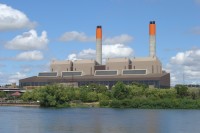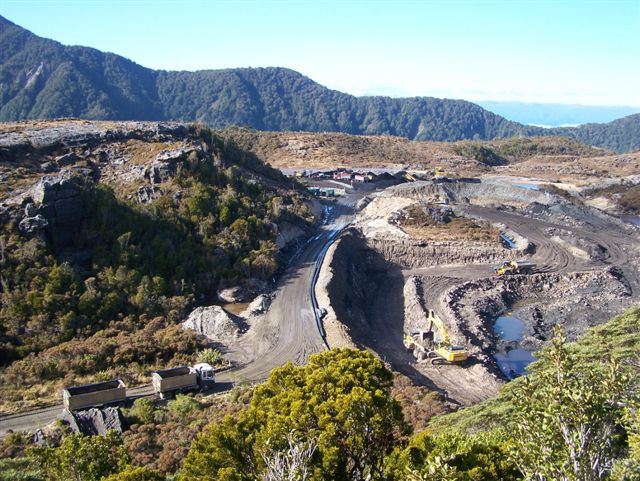 Simon Johnson looks at how New Zealand Aluminium Smelter Limited is behind the Meridian/Genesis deal keeping the Huntly Thermal Power Station burning coal as the threat of closing the Tiwai Point smelter is stalling the construction of consented renewable energy projects.
Simon Johnson looks at how New Zealand Aluminium Smelter Limited is behind the Meridian/Genesis deal keeping the Huntly Thermal Power Station burning coal as the threat of closing the Tiwai Point smelter is stalling the construction of consented renewable energy projects.
My last post at Hot Topic was about energy companies Meridian and Genesis doing a deal to keep the Huntly Thermal Power Station open (and burning coal) for an extra four years.
My post really just noted how backwards the decision was in terms of reducing emissions of greenhouse gases. And that the expected shut-down of Huntly represented the only predicted drop in energy emissions New Zealand had advised to the UNFCCC. And that reduction has just gone up in smoke.
However, New Zealand Aluminium Smelters Limited and the Tiwai Point smelter have a malignant background role in the Huntly deal.
Meridian Energy said the deal was necessary to provide security of energy supply if the hydro lakes are low. That is only the case if the next ‘cab off the rank’ of renewable energy capacity is not built to replace Huntly. The generators don’t want to build any new renewable capacity if the smelter closes and Meridian then releases cheaper Manapouri hydro electricity onto the grid.
Hence helter smelter deja vu all over again.
Continue reading “Helter smelter deja vu: Tiwai Point uncertainty stalls NZ renewables”

 This is the biggest new coal burning project in the country, with the hearing happening just as our Minister for Climate Change is about to travel to New York to sign the Paris agreement where we undertook to reduce our greenhouse emissions a totally inadequate 11% below 1990 levels. (It’s even more inadequate when
This is the biggest new coal burning project in the country, with the hearing happening just as our Minister for Climate Change is about to travel to New York to sign the Paris agreement where we undertook to reduce our greenhouse emissions a totally inadequate 11% below 1990 levels. (It’s even more inadequate when 

You must be logged in to post a comment.